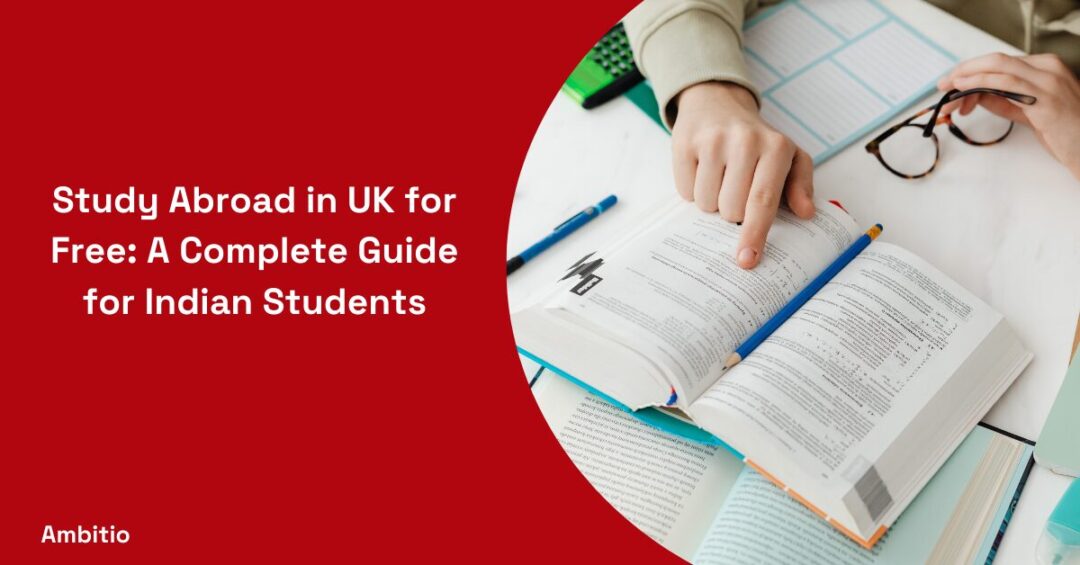14 December 2024
7 minutes read
Navigating Postgraduate Diploma Courses in the UK: A Comprehensive Guide for 2024

The United Kingdom’s reputation as a global leader in education is well-established, and its postgraduate diploma courses stand as a testament to the breadth and quality of opportunities available.
As we look toward 2024, the UK continues to offer a wide array of PGDip courses that serve as a bridge between undergraduate study and master’s degrees, providing students with the chance to specialize, enhance career prospects, and gain a competitive edge in their professional lives.
The Appeal of Postgraduate Diplomas in the UK
What is a Postgraduate Diploma?
A postgraduate diploma (PGDip) in the UK is a prestigious academic qualification awarded by universities upon the completion of a specialized course of study.
Unlike a full master’s program, a PGDip typically requires nine to twelve months of study. This makes it an excellent option for students looking to gain targeted knowledge and skills within a shorter timeframe.
Why Opt for a PGDip Over a Master’s Degree?
The decision to pursue a PGDip instead of a master’s degree can be strategic. A PGDip can provide a concentrated burst of learning in a specific field, which can be particularly advantageous for those wishing to:
- Update or acquire new professional skills in a shorter period.
- Transition to a new career field without committing to a two-year master’s program.
- Attain a postgraduate qualification while minimizing financial and time investments.
Exploring the Diversity of PGDip Courses
Choosing the Right Course and University
In 2024, the UK’s universities continue to offer a myriad of postgraduate diplomas across various disciplines. Whether you’re interested in the arts, sciences, business, or technology, there is a PGDip course tailored to your interests and career goals.
Admission Requirements for PGDip Courses
Admission requirements for PGDip courses may vary across universities and disciplines. Generally, applicants are expected to hold an undergraduate degree or its equivalent. Proficiency in English demonstrated through tests like IELTS or TOEFL, is also a standard requirement, especially for international students.
The Application Process: A Step-by-Step Guide
Applying for a PGDip course involves several steps:
- Research and shortlist the courses and universities that align with your career objectives.
- Prepare and submit your application with all the necessary documents before the deadline.
- If required, prepare for and complete any admission tests.
- Await the admission decision and plan your finances, including exploring scholarship options.
Financial Planning for Your PGDip Study
Embarking on a Postgraduate Diploma (PGDip) in the UK is an exciting academic pursuit, but it also requires careful financial planning. Whether you are a domestic or international student, understanding the costs associated with your study and living expenses is critical for a stress-free educational experience. In this section, we’ll delve into tuition fees, living costs, scholarships, and tips on managing your finances effectively.
Understanding Tuition Fees and Living Costs
The cost of your PGDip program in the UK will vary depending on the university and the course you choose. On average, tuition fees for postgraduate diplomas can range from £4,000 to over £20,000 per year for international students. It is important to check the specific fees on the university’s website and factor in potential increases for the upcoming academic year.
Living costs in the UK can also be substantial. You’ll need to budget for accommodation, food, transportation, books and supplies, and personal expenses. The exact amount will depend on your lifestyle and the city in which you study, with London and other major cities typically being more expensive. On average, students might need between £1,000 and £1,500 per month to cover living expenses.
Budgeting for Your Studies
Creating a budget is a vital step in your financial planning. Break down your costs into tuition fees, accommodation, utilities, food, transportation, and other personal expenses. Don’t forget to include one-off costs such as visa fees, health insurance, and initial set-up costs upon arriving in the UK.
Scholarship Opportunities and Financial Aid
Scholarships can significantly reduce the financial burden of a PGDip. They are offered by universities, private organizations, and governmental bodies. Some scholarships cover the full cost of tuition, while others may provide a stipend for living expenses or a one-time award. Research scholarships early and apply for as many as you qualify for to increase your chances of receiving financial support.
Student Loans
Student loans are another option to consider. In the UK, postgraduate loans are available for UK and EU students, and some international students may be eligible for loans from their home countries or through international lenders. Read the terms and conditions carefully to understand the repayment schedule and interest rates.
Part-time Work
Many students choose to work part-time to support themselves during their studies. The UK allows international students to work up to 20 hours per week during term-time and full-time during vacations. Part-time work can help cover living expenses and give you valuable work experience.
Money-Saving Tips
To make the most of your budget, consider the following tips:
- Look for accommodation that includes utilities to avoid unexpected bills.
- Take advantage of student discounts on transportation, entertainment, and shopping.
- Cook at home instead of eating out and buy groceries in bulk.
- Use second-hand books or digital versions when possible.
- Monitor your spending regularly to stay on track with your budget.
Additional Financial Considerations
It’s also essential to prepare for unforeseen expenses. Set aside a contingency fund for emergencies and unexpected costs. Furthermore, consider the exchange rate if you are an international student bringing funds from home; fluctuations in currency can affect your budget.
Planning Ahead
Finally, plan for your financial future post-PGDip. Investigate potential earnings in your chosen field and consider how you will manage loan repayments or replenish savings used during your studies.
Preparing for Your PGDip Journey in the UK
The journey to obtaining a Postgraduate Diploma (PGDip) in the UK is a rewarding endeavor that requires meticulous preparation. Beyond academics, this preparation involves adapting to a new cultural and educational environment, especially for international students. From understanding the British educational system to integrating into the UK’s vibrant society, there’s a lot to consider before and after you arrive.
Understanding the UK Educational System
The UK’s education system may differ significantly from what you’re used to. It is known for its rigorous standards and emphasis on independent study. You’ll need to be prepared for a different style of teaching and assessment, which might include a combination of lectures, seminars, and practical workshops. Understanding the structure of your PGDip course, the assessment methods, and the expectations will help you hit the ground running.
Adapting to British Academic Culture
British academic culture values critical thinking, debate, and in-depth analysis. Be ready to participate in discussions, present your ideas clearly, and write extensively. Academic support services are available at most institutions, offering help with writing skills, research methods, and more.
Visa Application Process
For international students, securing a student visa is one of the most critical steps. Start your visa application process as soon as you receive your acceptance letter to ensure you have plenty of time to meet all the requirements.
This includes proving your English language proficiency, providing evidence of sufficient funds to cover tuition fees and living costs, and having a confirmed place at a licensed university.
Arranging Accommodation
Finding the right place to live is crucial for your comfort and study success. University halls of residence are a popular choice for first-year students, offering a secure and sociable living environment.
Alternatively, you may opt for private accommodation, shared apartments, or homestays. Consider factors like distance from the university, cost, and the amenities available when choosing your home away from home.
Budgeting and Financial Management
As discussed in the previous section, financial management is paramount. Once you have a clear picture of the costs, create a budget that includes all your expenses, and stick to it. Open a UK bank account to manage your finances efficiently and look into getting an international student identity card for discounts.
Health and Insurance
Register with a local General Practitioner (GP) as soon as you arrive. If you’re on a Tier 4 student visa, you’ll have access to the National Health Service (NHS), but you may still want to consider additional health insurance for extra coverage. Also, familiarize yourself with the location of the nearest hospital and pharmacy.
Cultural Integration
The UK is known for its diverse and multicultural society. Take the opportunity to immerse yourself in the local culture, join societies and clubs, and make connections with fellow students and locals. This will not only enhance your social life but also help you build a supportive network.
Building a Support System
Establishing a strong support system can be vital for international students. This can come from university services, new friends, or local communities. Don’t hesitate to seek out counseling services if you find yourself struggling to cope with the changes.
Preparing for the Weather
The UK weather can be variable, so pack accordingly. Warm clothing, waterproofs, and comfortable footwear will serve you well throughout the year.
Understanding Legal Rights and Responsibilities
Familiarize yourself with your rights and responsibilities as a student in the UK, including any work restrictions and legal obligations. Knowing these will help you navigate your stay without any legal complications.
Preparing for Life After Your PGDip
Think about your plans after completing your PGDip. Whether you aim to enter the workforce or continue with further studies, start exploring your options early. Attend career fairs, consult with your university’s career services, and network within your industry.
Leveraging Your PGDip for Career Advancement
How a PGDip Can Enhance Your Job Prospects
A PGDip can significantly boost your employability by providing you with specialized skills and knowledge that are in high demand. Employers often value the focused expertise that a PGDip holder brings to the table.
Networking and Career Services at UK Universities
UK universities offer excellent career services and networking opportunities. These can include career fairs, workshops, and alumni events, which are invaluable for job hunting and professional development.
The Value of a UK PGDip in the Global Job Market
A UK PGDip is highly regarded worldwide. It signifies a high level of education and can open doors to international career opportunities and advancements.
Conclusion
Pursuing a postgraduate diploma in the UK is more than an academic endeavor; it’s a strategic career move. Whether through full-time, part-time, or distance learning, a PGDip equips you with specialized knowledge and opens up new professional avenues.
As the world evolves, so do the courses and opportunities available in the dynamic landscape of UK higher education. Prepare to embark on this transformative journey, and leverage the power of a UK postgraduate diploma to realize your potential in the global job market.
FAQs: Your Questions Answered
Can international students work while studying for a PGDip in the UK?
Yes, international students can work part-time during their studies, subject to visa regulations.
Are PGDip courses available online or through distance learning?
Many UK universities offer online or distance learning options for PGDip courses, providing flexibility for students.
What is the difference between a PGDip and a Postgraduate Certificate (PGCert)?
A PGDip is a more extensive qualification than a PGCert, often requiring a longer period of study and covering more material.
How does a PGDip differ from a master’s degree?
A PGDip is usually shorter than a master’s degree and does not typically require a dissertation. However, it can often be converted into a master’s degree with additional study.
What support services are available for PGDip students in the UK?
UK universities offer a range of support services, including academic advice, mental health counseling, and assistance for international students.

You can study at top universities worldwide!
Get expert tips and tricks to get into top universities with a free expert session.
Book Your Free 30-Minute Session Now! Book a call now




























